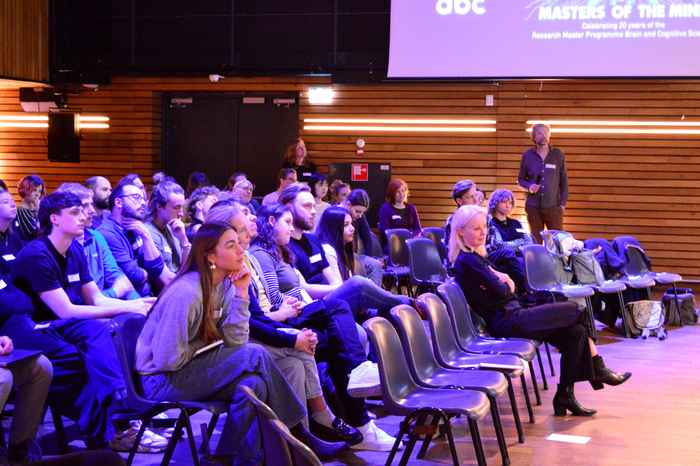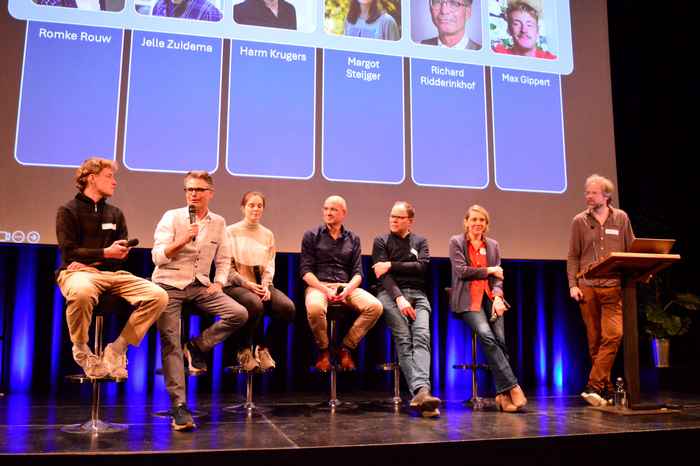20 years of pushing boundaries with the Msc Brain and Cognitive Sciences
16 April 2024
The atmosphere at Pakhuis de Zwijger is warm and enthusiastic. Programme director Umberto Olcese welcoms everyone. "Today we will celebrate our succesful Master’s degree programme, ravel in past accomplishments, but more importantly: look forward."
It is characteristic of interdisciplinary education to be ahead of the times, confirms also the next speaker Rector Magnificus Peter Paul Verbeek. He emphasises that it is not only a celebration for the programme, but also for the entire university. "You have found a space between disciplines, but also between the academy and society. This makes you a role model for other faculties at the UvA." Peter-Paul Verbeek explains that the UvA is proud of its decentralisation, but that this also creates challenges. The future will require more bridge-builders such as the Brain and Cognitive Sciences Master's degree and the Institute for Interdisciplinary Studies. "Interdisciplinarity will play a big role in our upcoming strategic plan for the university."
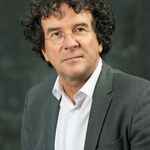
You have found a space between disciplines, but also between the academy and society. This makes you a role model for other faculties at the UvA.Rector Magnificus Peter Paul Verbeek
Next, Lucy Wenting takes the floor. She helped creating the programme 20 years ago, while she had also just become a mother. "And if you think it's hard to raise a child, try setting up an interdisciplinary Master's degree," she said. What once started as a lecture series became a summer school, and grew into the first edition of the Master's degree the following year. Back then, the curriculum was much more fixed: interdisciplinarity in a Master's degree was revolutionary enough. Over time, the programme became freer, and the intake of students also became more interdisciplinary. New interdisciplinary Bachelor degrees emerged such as Psychobiology and Neurolinguistics. Staying flexible and forward-looking remained a challenge. "That takes a lot of time and energy, but creates open-minded researchers. And that is more than worth it."
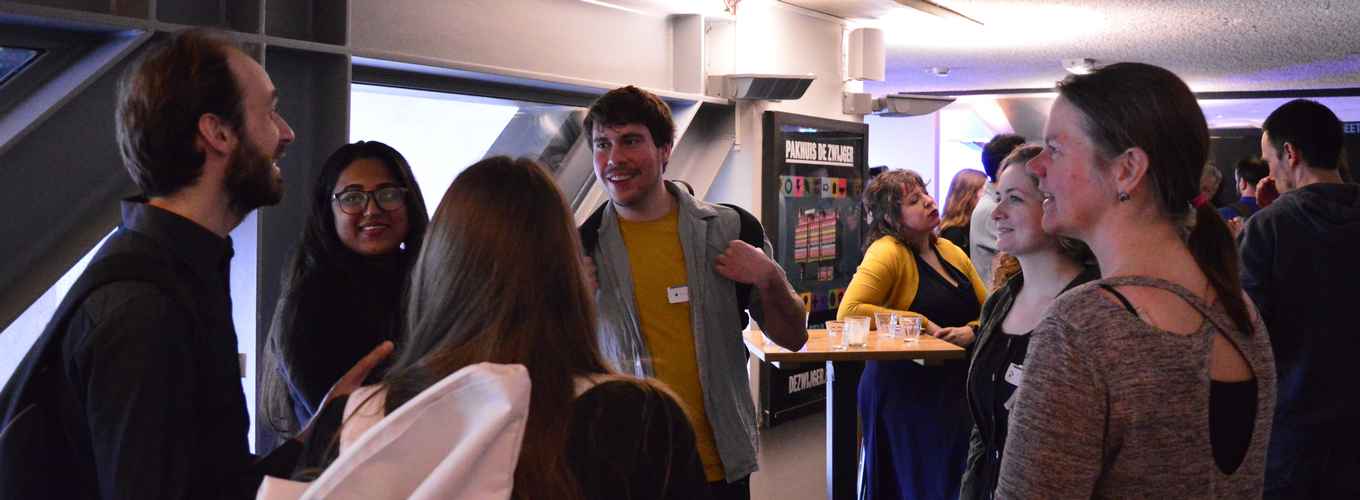
The afternoon continues with a lecture by Professor Morten Kringelbach, Neuroscientist at the University of Oxford. He has done a lot of research on happiness and joy. He talks about key traits of happy people: kindness, fun and curiosity. "Students should not learn to be smart, but to be curious," he says. A student asks, "If this is the key to happiness, why are so many people not kind, fun or curious?" Kringelbach laughs. "Good question. People sometimes hesitate to act this way because they think there is only so much love to give, whereas love is infinite. You can love one child as well as thirteen children. You just have to trust that the amount of love you give will be equal to the amount of love you get. And not everyone manages to do that." This statement fit the rest of the evening perfectly. Kindness, fun and curiosity is deeply rooted in this community.
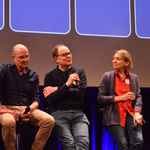
Students should not learn to be smart, but to be curious.Dr. Jelle Zuidema
This also comes up during the panel discussion. Six different stakeholders of the programme take a seat on the stage at Pakhuis de Zwijger: domain coordinator of Cognitive Neuroscience Dr. Romke Rouw, domain coordinator of Cognitive Science Dr. Jelle Zuidema, former director and domain coordinator of Translational Neuroscience Dr. Harm Krugers, chair of the alumni network Margot Steijger, lecturer and friend of the programme, Prof. Dr. Richard Ridderinkhof and current MBCS student Max Gippert. Using a quiz, they dive into history, and discuss the future. Current programme coordinator Vincent Tijms leads the discussion, starting with a small introduction: "In the beginning, the programme was unique within the field. Meanwhile, the world is developing with us. This challenges us to explore the boundaries of the domain even more, because at the fringes we can find the biggest and most important challenges."
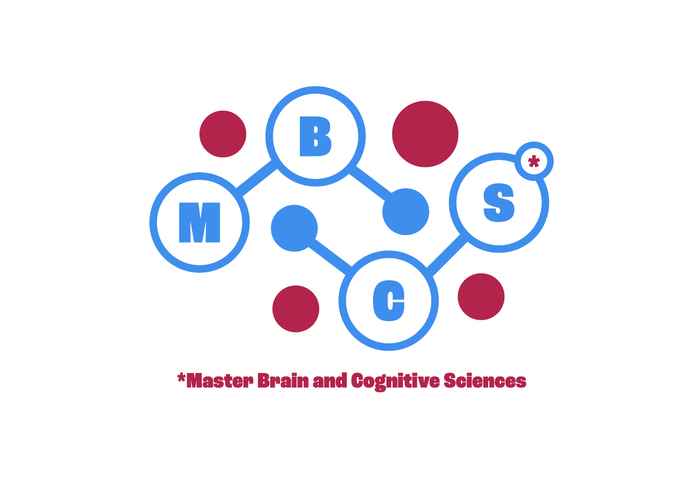
Once again, the strength of the people within the programme is underlined. As Dr. Jelle Zuidema says: "Because the study is interdisciplinary, the class is full of different students with different expertise and knowledge levels. That's why community is so important: we can and should always keep learning from each other."
